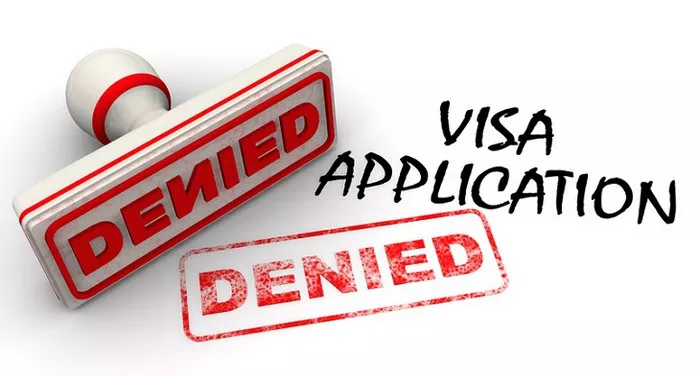In the global landscape of higher education, pursuing studies abroad has become increasingly popular among students seeking to broaden their horizons, gain exposure to diverse cultures, and access top-tier academic institutions. However, one critical hurdle that students must navigate is obtaining a student visa, which permits them to reside in their chosen country for the duration of their studies. While many applicants successfully secure their visas, some face the disheartening prospect of rejection. Understanding the factors that contribute to student visa rejections is crucial for prospective students and educational institutions alike. In this article, we delve into the intricacies of student visa applications and explore the various determinants that influence rejection rates.
The Complex Landscape of Student Visa Applications
Securing a student visa is often a multifaceted process that requires careful attention to detail and adherence to specific requirements set forth by the immigration authorities of the host country. Each country has its own set of visa regulations and procedures, adding to the complexity of the application process. While some nations have relatively straightforward visa policies for students, others have stringent criteria that applicants must meet.
Factors Contributing to Student Visa Rejection
1. Incomplete or Inaccurate Documentation: One of the most common reasons for visa rejection is the submission of incomplete or inaccurate documentation. Visa officers rely heavily on the information provided by applicants to assess their eligibility for a student visa. Missing documents or discrepancies in information can raise red flags and result in rejection.
2. Financial Insufficiency: Most countries require proof of sufficient funds to cover tuition fees, living expenses, and other related costs for the duration of the student’s stay. Failure to demonstrate adequate financial resources is a prevalent reason for visa refusal. Applicants must provide bank statements, scholarship letters, or sponsor affidavits to substantiate their financial capacity.
3. Lack of Genuine Intent: Visa officers scrutinize applicants’ motives for studying abroad to ensure they are genuine students with legitimate academic pursuits. Suspicion of visa fraud or intentions to immigrate permanently can lead to rejection. Applicants must convincingly demonstrate their commitment to academic excellence and their intention to return to their home country upon completion of their studies.
4. Poor Academic Record or Unaccredited Institutions: Educational background plays a significant role in visa assessment. Applicants with subpar academic records or degrees from unaccredited institutions may encounter difficulties in obtaining a student visa. Immigration authorities prioritize candidates with strong academic credentials and reputable educational backgrounds.
5. Language Proficiency: Proficiency in the language of instruction is essential for academic success in foreign universities. Many countries require evidence of language proficiency, typically through standardized tests such as the TOEFL or IELTS. Failure to meet the language requirements can result in visa rejection, as it raises concerns about the applicant’s ability to succeed academically.
6. Health and Security Concerns: Visa applicants are often required to undergo medical examinations to ensure they are in good health and do not pose a public health risk to the host country. Additionally, individuals with a history of criminal activity or security threats may be deemed inadmissible and have their visa applications rejected.
Strategies to Improve Visa Approval Odds
While the prospect of visa rejection can be daunting, there are several strategies that prospective students can employ to enhance their chances of approval:
1. Thoroughly Research Visa Requirements: Before initiating the application process, prospective students should familiarize themselves with the specific visa requirements of their chosen destination country. Understanding the documentation and financial obligations can help applicants prepare a comprehensive and accurate visa application.
2. Seek Guidance from Educational Consultants: Educational consultants specialize in assisting students with the visa application process and can provide invaluable guidance on preparing a strong application. These professionals can offer insights into visa policies, assist with document preparation, and address any concerns or questions applicants may have.
3. Maintain Clear Communication with Visa Authorities: In cases where additional information or clarification is required, visa officers may reach out to applicants for further documentation or interviews. Maintaining clear and prompt communication with visa authorities can expedite the application process and demonstrate the applicant’s willingness to cooperate.
4. Address Weaknesses in the Application: If an applicant’s profile has potential weaknesses, such as a low GPA or language proficiency issues, they should take proactive steps to mitigate these shortcomings. This could involve retaking standardized tests, enrolling in language courses, or obtaining additional academic certifications to bolster their credentials.
5. Demonstrate Strong Ties to Home Country: To alleviate concerns about immigration intent, applicants should emphasize their strong ties to their home country. This may include family connections, property ownership, employment prospects, or future career aspirations that necessitate returning home upon completion of their studies.
6. Be Honest and Transparent: Honesty and transparency are paramount throughout the visa application process. Applicants should provide accurate information, avoid misrepresentations or fabrications, and be prepared to substantiate any claims made in their application.
Conclusion
Navigating the student visa application process can be a challenging endeavor fraught with uncertainty. While visa rejection rates vary depending on various factors, understanding the determinants that influence approval or refusal is essential for prospective students seeking to study abroad. By adhering to visa requirements, addressing potential weaknesses in their applications, and demonstrating genuine intentions, applicants can enhance their chances of securing a student visa and embarking on a transformative educational journey abroad.


